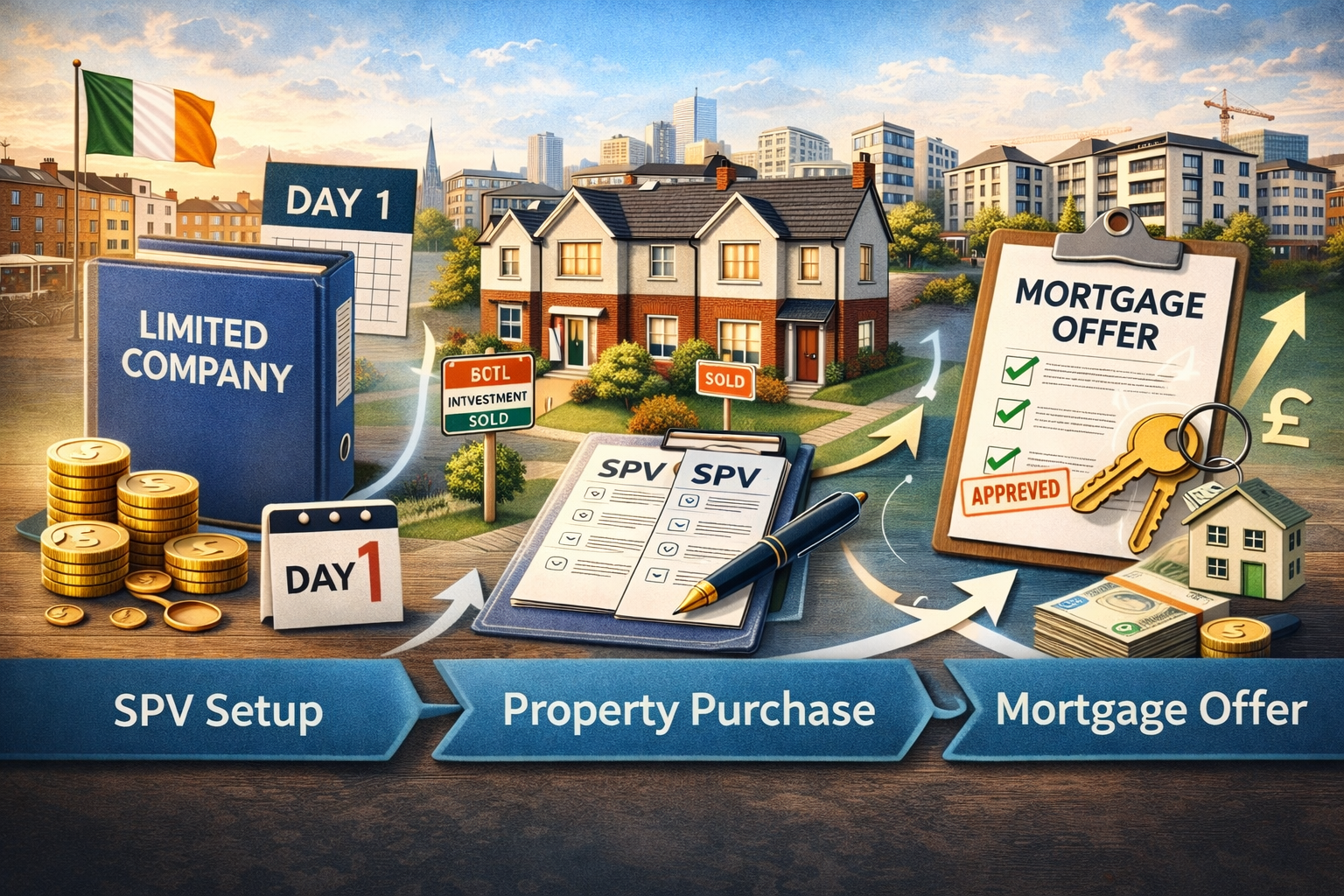Are you a homeowner in Ireland looking to tap into the wealth tied up in your property? Equity release might be the answer you’ve been searching for. This financial tool allows homeowners, particularly those of retirement age, to convert part of their home equity into cash without having to sell their beloved abode. Imagine funding that dream holiday or making necessary home improvements while still enjoying your space!
But what exactly does equity release mean for you? How can it work within your financial plans? In this blog post, we’ll delve deep into the ins and outs of equity release in Ireland, exploring its benefits and risks along with practical steps on how to get started. Ready to uncover how you can unlock your home’s potential?
Let’s dive right in!
How Does Equity Release Work?
Equity release allows homeowners to access the cash tied up in their property without selling it. Basically, you can unlock a portion of your home’s value while retaining ownership.
When you choose this option, either through a lifetime mortgage or a home reversion plan, funds are released based on your home’s current market value. A lifetime mortgage means taking out a loan against your property, while with home reversion, you sell part of your house in exchange for immediate cash.
Interest accumulates over time with lifetime mortgages. This could impact the total amount owed when repaying later.
Additionally, equity release is generally repaid upon death or moving into long-term care. It’s essential to understand that Releasing Equity In Your House impacts inheritance and future financial planning.
Seeking advice from Money Maximising Advisors can help clarify these considerations before proceeding.
Types of Equity Release in Ireland
Equity release options in Ireland primarily fall into two categories: lifetime mortgages and home reversion schemes.
Lifetime mortgages involve borrowing against the value of your home while retaining ownership. You continue living in your property, and the loan plus interest is repaid when you move out or pass away.
Home reversion schemes work differently. With this option, you sell a portion of your home to a lender in exchange for cash while maintaining the right to live there rent-free until you decide to leave or die.
Both types can help homeowners access funds tied up in their properties but come with distinct implications for estate inheritance. Understanding these differences is crucial as they influence future financial decisions.
📅 Book Now – Schedule your consultation with our expert advisors today.
Benefits and Risks of Equity Release
Equity release can be a powerful tool for homeowners seeking to access cash.
- One of the primary benefits is that it allows you to unlock funds tied up in your property without having to sell your home. This money can support various needs, from home improvements to funding retirement.
- However, it’s essential to consider potential risks as well. The most significant concern is the impact on inheritance. Releasing equity means there will be less value left in the estate for heirs when you pass away.
- Additionally, depending on equity release mortgage rates and terms, repayments may increase over time due to interest accumulation. This could lead some individuals into financial strain if not managed carefully.
Understanding these factors helps ensure informed decisions regarding releasing equity in your house or securing an equity release mortgage with lenders suited for your situation.
Eligibility Criteria for Equity Release
Eligibility for equity release in Ireland often hinges on a few key factors.
- First and foremost, you typically need to be at least 55 years old. This age requirement varies slightly among different equity release mortgage lenders.
- Your property must also meet specific criteria. Most lenders prefer homes valued above a certain threshold, usually around €100,000 or more. The type of property plays a role too; standard residential homes qualify easier than properties like holiday homes or shared ownership dwellings.
- Additionally, your financial situation matters. Lenders will assess your income and existing debts to ensure that releasing equity from your house won’t place undue strain on your finances.
- Having no outstanding mortgages is ideal but some providers may allow partial loans under certain conditions. Always consult with Money Maximising Advisors for tailored guidance based on personal circumstances.
📩 Enquire Now – to unlock the potential of your property today with Money Maximising Advisors.
The Process of Applying for Equity Release
Applying for equity release can seem daunting, but breaking it down into steps makes it manageable.
- First, you’ll want to assess your needs and financial situation. Think about how much money you need to release from your house and what you plan to use it for.
- Next, it’s wise to consult with a qualified advisor. Money maximising advisors can guide you through the available options tailored specifically for your circumstances.
- Once you’ve chosen a suitable product—whether that’s an equity release mortgage or another type—you’ll gather necessary documentation like proof of identity and property valuation details.
- After submitting your application, lenders will review the information provided. They may ask additional questions or require further evidence.
- If approved, terms will be outlined in detail before finalising anything. Ensure you’re clear on repayment conditions and any potential impact on inheritance before moving forward.
Conclusion
Equity release is an appealing option for many homeowners in Ireland looking to unlock the value of their property. By understanding how equity release mortgages work and exploring various types available, you can make informed decisions that align with your financial goals.
It’s essential to weigh the benefits against potential risks. The right choice often hinges on your personal circumstances and long-term plans. Checking eligibility criteria ensures you’re on solid ground before proceeding.
The application process may seem daunting, but with Money Maximising Advisors at your side, navigating through it becomes much simpler. They can help you find suitable Equity Release Mortgage Lenders and guide you toward competitive Equity Release Mortgage Rates tailored to meet your needs.
If you’re considering releasing equity in your house, take the time to ask questions—whether regarding terms or impact on future inheritance plans. This approach will lead to a more fulfilling experience as you embark on this journey.
Remember, taking such a step is significant; ensure you’re well-informed every step of the way.
📞 Contact Us – We’re here to help you make the smartest mortgage decision!










